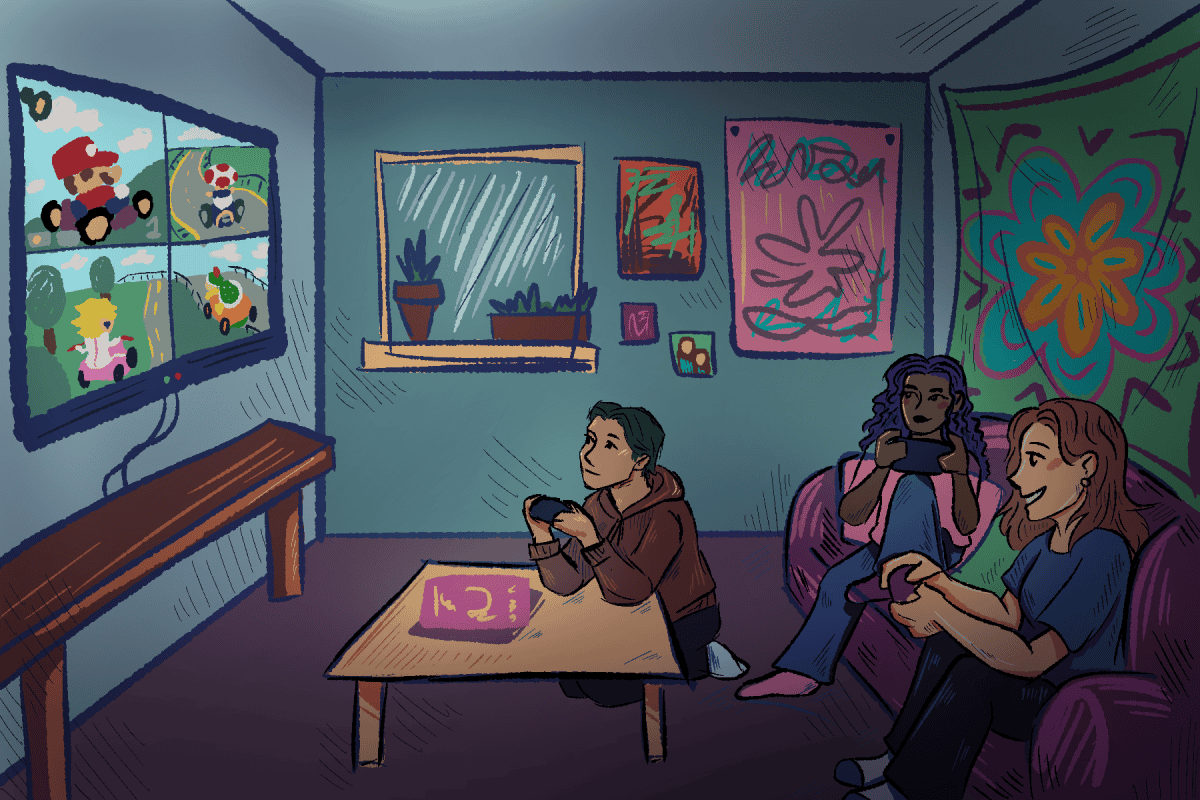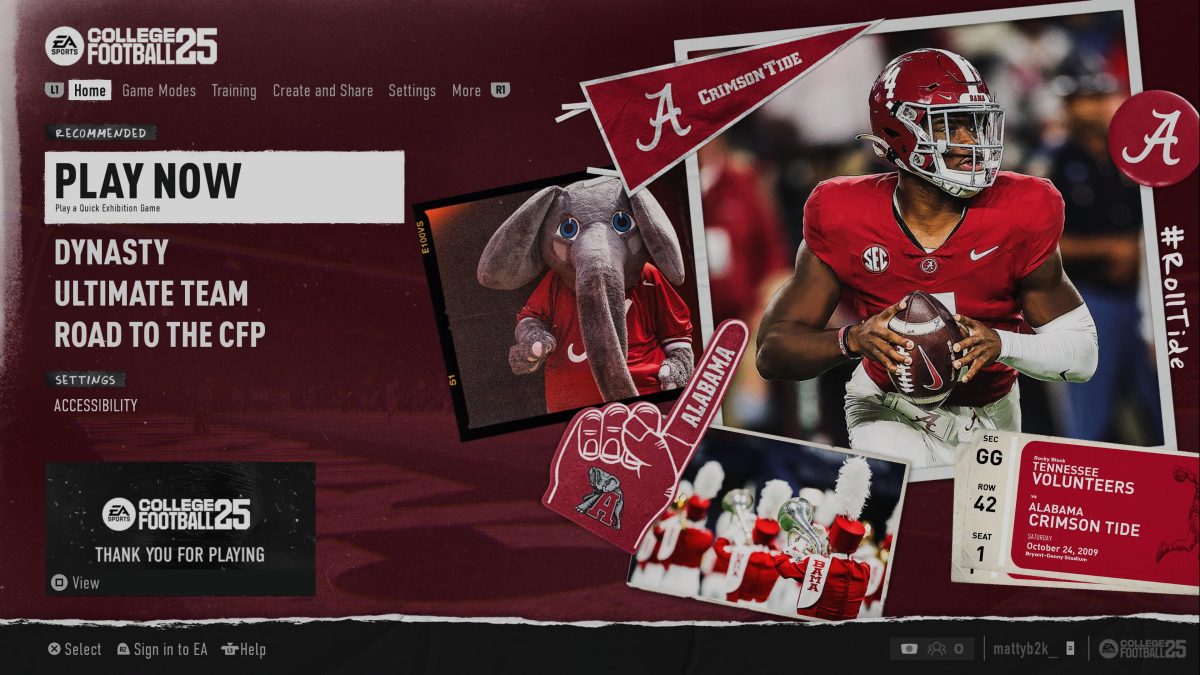Walking into “Barbie” with the expectation of another intellectual-property-based blockbuster — something fun but superficial, in the vein of “The Super Mario Bros. Movie” or “Detective Pikachu” — will result in a shock to the senses.
The reception alone is a sign of its operating at a higher level. It has earned a 90% critics’ rating on Rotten Tomatoes, a 7.5/10 on IMDb and a 4.2/5 on Letterboxd.
There’s something different about “Barbie.” It’s got all the fan service and fun of other movies based on toys, games, etc., but it goes much deeper. It broaches uncomfortable yet important social issues. It’s not a kids’ movie. It’s a mature, artful meditation in the body of a summer blockbuster.
Even so, it’s important to recognize the quality and care with which the film is crafted. Each shot is infused with color and vibrance, although in modern cinema this is a pretty low bar. Complementing the visuals is consistently effective humor bolstered by slick and perfectly fit performances all around.
There’s also the smart directorial touch of Greta Gerwig, who continues to prove, even in just her fourth outing, that she has a gift for the medium. Like in “Lady Bird” and “Little Women,” there’s an almost intangible emotional component of “Barbie” that connects the viewer to the tribulations and triumphs of its lead characters.
Thanks to Gerwig’s boldness, it’s strikingly unafraid to express its ideas. Female empowerment is the ground on which the film is built. It honestly shouldn’t come as a surprise that such a movie can stem from a property whose mission — literally stated in the opening scene — is “challenging gender stereotypes and helping undo the biases that hold girls back from reaching their full potential.”
There is absolutely no couching language, no attempt to water down this theme in order to appeal to a wider audience. Whether in the male-female dichotomies specifically portrayed both in Barbie Land and the real world, the childlike-innocence questioning of current gender dynamics, or the exhausted lamentation on society’s expectations of women, “Barbie” pulls no punches.
At first, it’s easy to feel apprehensive about the utter lack of ambiguity. For theme-oriented viewers, having the moral spelled out in bold letters can feel jarring, as if the movie is robbing its audience of its intellectual engagement with the story.
Thematic detective work isn’t what “Barbie” is concerned with, however. From the outset, it seeks to confront the sexism that mars too many parts of life to count. The film’s pushbacks are by no means new or revolutionary;, though their popularity has varied, feminist ideas have been around for decades, centuries, arguably even the whole of history. But seldom have they been so unashamedly portrayed in mainstream Hollywood.
If one has qualms with these bold expressions, one must examine those qualms and determine whether it’s valid to impose them on the movie itself. There is no deception on the film’s part nor wishy-washiness of philosophy. Whether one agrees with it or not is less important than respecting its integrity.
It would be equally imprudent to observe the thematic distinctness and declare “Barbie” a masterpiece of cinema. Gerwig delivers a hit, no doubt, but a couple issues stand out.
First is the film’s superfluous writing. Two things can be true at once, and in this movie, they are: The writing and dialogue are both sharp and overly grand, expert and clunky.
In moments of exploring societal sexism and the psychology of gender — whether the laugh-out-loud construction site bit or Ken’s first encounter with all the different parts of masculinity — the writing is admirable. In the random run-on sentences with flowery words and little discernible structure, however, it’s quite annoying. It’s clear that there’s no intelligence behind these lines, rather someone with a thesaurus and little understanding of grammatical efficiency.
Next is its overambition, which spills over into its pacing. Up until the end of the climax, capped with sure-to-be best original song contender “I’m Just Ken,” the story and the ideas are expressed at the same precise speed. However, the resolution adds another 20 minutes to the runtime.
Instead of drawing to a close with all the momentum on its side, the movie continues to throw out theme after theme. None of them is individually bad. Frankly, each one could probably go on a T-shirt, but collectively they make the end feel dragged out and fluffy. These ideas didn’t necessarily need to be cut, but they could’ve been much more effective if evenly integrated into the rest of the film.
Aside from these drawbacks, “Barbie” is rock-solid. It’s a totally new type of blockbuster, exploring divisive and often somber issues with a bright yet aware tone. There are sure to be critics who characterize the movie with all its strengths as little more than a political statement with which they disagree. Encouragingly, the film’s reception seems to suggest that such hastiness is limited to a minority.
At the end of the day, it’s an important movie, if not for the value of its ideas, then for its dedication to them. Not every viewer is going to be deeply affected. When its end credits are met with a round of applause from an audience filled with smiling members of its target demographic, however, no one can deny it has done its job well.













